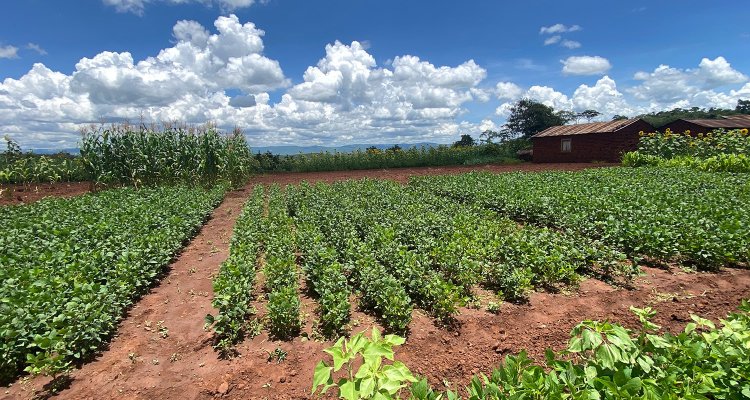
Project
Exploring benefits of legume intensification in the Southern Highlands of Tanzania
This research aims to investigate the potential benefits of enhancing legume cultivation using advanced technologies such as rhizobium inoculants in Tanzania's Southern Highlands. By studying 40 farmers over two seasons, the project seeks to understand which legume technologies work best for different farmers and how these technologies can improve overall farm productivity. Through field experiments, discussions with farmers, and economic modelling, the goal is to identify effective strategies for increasing legume yields and distributing these benefits across diverse smallholder farming systems in the region.
Background
This research focuses on understanding and enhancing legume cultivation in Tanzania's Southern Highlands, aiming to improve farm productivity and livelihoods. By studying 40 farmers over two seasons, the project seeks to identify effective legume technologies and their impacts on crop yields. Through on-farm experiments, discussions with farmers, and economic modelling, the study aims to uncover the socio-economic drivers and barriers to legume intensification, including gender dynamics, and assess the distribution of benefits across diverse smallholder farming systems. The research aims to fill knowledge gaps by exploring farmers' rationale for adopting improved legume technologies and investigating the socio-economic and cultural factors influencing farming decisions. By evaluating the impacts of legume intensification at the field, farm, and farming system levels, the study seeks to inform strategies for enhancing legume cultivation and maximising its benefits for farmers in the region.
Project description
This research project focuses on investigating the potential benefits of enhancing legume cultivation in the Southern Highlands of Tanzania. Legumes, such as common beans and soybeans, play a crucial role in smallholder farming systems in Sub-Saharan Africa (SSA), contributing to food security, soil fertility, and income generation. However, despite their importance, the full potential of legumes has not been fully realized due to various challenges, including poor agronomic practices and the complexity of smallholder farming systems.
The main objective of this study is to understand the socio-economic drivers and barriers to legume intensification in the region and to identify effective strategies for improving farm productivity and livelihoods. Specifically, the research aims to investigate the agronomic benefits of legume intensification, farmers' rationale for adopting or not adopting legume technologies, and the socio-economic and cultural factors influencing farming decisions related to legume cultivation.
To achieve these objectives, the study will conduct participatory research with 40 farmers over two consecutive seasons. This will involve on-farm experiments to evaluate the effects of improved legume technologies, such as inoculants and fertilisers, on common bean and soybean yields, as well as their residual effects on subsequent maize crops. Additionally, detailed farm characterisations will be carried out to understand the diversity in legume cultivation practices among farmers in the region.
The research will also explore the distribution of legume intensification benefits among different farm households, considering factors such as gender dynamics and the accessibility of production resources. By assessing the impacts of legume intensification at the field, farm, and farming system levels, the study aims to provide insights into scalable strategies for enhancing legume cultivation and maximising its benefits for smallholder farmers in the Southern Highlands of Tanzania.
Overall, this project seeks to fill knowledge gaps in understanding the dynamics of legume intensification in the region and to provide evidence-based recommendations for promoting sustainable agricultural practices and improving food security and livelihoods for smallholder farmers.